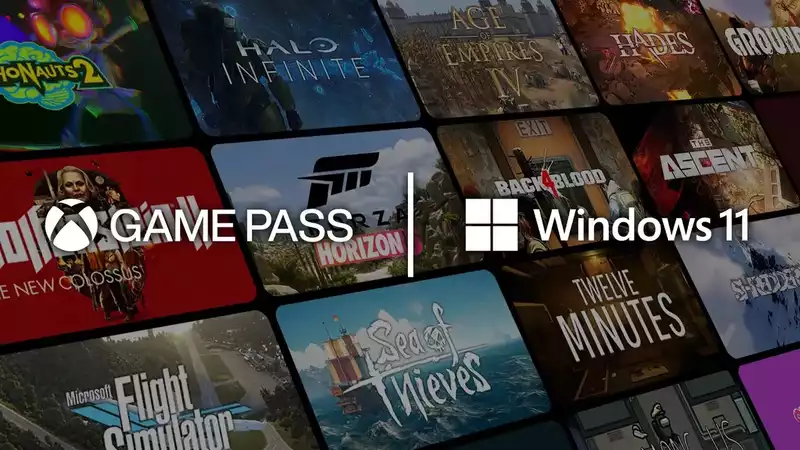Gaming on Windows 10 isn't as inconvenient or frustrating as previous Microsoft operating systems; it's certainly not as intuitive as playing on the Xbox Series X, PS5, or Steam. It's strange that it feels like Windows gaming has always taken a backseat.
After all, Microsoft has done a (mostly) great job with Xbox for the past two decades. But given the recent rise in popularity of PC gaming, it makes sense for Microsoft to finally step up its game with Windows 11, which launches next Tuesday, October 5.
So what does Windows 11 mean for gamers? Perhaps you will agree with the notion that it brings the greatest advantages of the Xbox Series X to the PC.
Integration is the first major feature, and Windows 11 will include a built-in Xbox app that allows users to jump right into Xbox Game Pass (for PCs) games, Integrating Xbox directly into Windows 11 would go a long way toward following that philosophy.
Integration also means that the Xbox's track record and gamer's core will carry over to Windows 11. While this feature is present in Windows 10, its inclusion in Windows 11 is noteworthy; given the switching between Xbox console, PC, and mobile platforms, this form of integration and cross-platform data transfer is essential.
Both Xbox series systems are designed to pull data from NVMe M.2 SSDs, which feature ultra-fast load times, and Windows 11 will have similar capabilities. Its DirectStorage API will allow for faster loading times for games on PCs if the rig has an SSD installed. Since some PCs already enjoy quick load times, this feature may be negligible for certain users. However, the fact that Microsoft wants to bring the Windows gaming experience on par with Xbox benefits everyone.
In addition to reduced load times, the utilization of SSDs may one day mean the end of the awkward technique of hiding loading screens. This includes long elevator rides in Mass Effect, escaping through gaps in Final Fantasy VII Remake, and characters climbing over high walls in The Last of Us. Removing these transitional scenes creates the possibility of an entirely new gameplay experience.
Auto-HDR is not a flashy feature like DirectStorage or Xbox Game Pass integration, but its inclusion in Windows 11 eliminates the frustration caused by trying to use HDR in Windows 10. HDR is not a universal feature in games and must be manually enabled in HDR-enabled titles. In theory, HDR could be left on, but enabling it outside of games makes Windows 10 look washed out; even games without HDR lose half their appeal when this feature is enabled. That is why automatic HDR is a welcome feature. Enabling this feature will automatically (through AI) improve the gamut of non-HDR games so that they appear to be running in HDR.
To see how these features affect your game, you will need to test your title in Windows 11. As mentioned at the outset, Microsoft's track record in PC gaming is not the best; while gaming on Windows 10 is not a disaster, it is still considered suboptimal by much of the PC gaming community.
For this reason, it is important to consider Microsoft's desire to bring as many people as possible into their ecosystem: the Xbox is available for both PC and mobile devices. These platforms have a user base that dwarfs that found on consoles, and it makes sense that Microsoft would want the Xbox to appeal to these audiences, even if there are many in the PC community who scoff at the idea of playing games on Windows, Even if there is a large segment of the PC community that scoffs at playing games on Windows, their size is negligible compared to the aforementioned audiences. Again, the outlook for Windows 11 gaming is bright, although we can't judge until we try it out. If Microsoft delivers the product, gaming on Windows could be as good as playing on the Xbox Series X
.









Comments